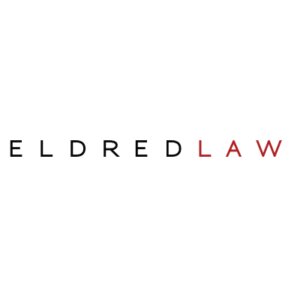Best Toxic Mold Lawyers in United Kingdom
Share your needs with us, get contacted by law firms.
Free. Takes 2 min.
Or refine your search by selecting a city:
List of the best lawyers in United Kingdom
About Toxic Mold Law in United Kingdom
Toxic mold refers to strains of mold that release mycotoxins, which can be harmful to health. In the United Kingdom, there is increasing awareness of the health risks associated with exposure to toxic mold, particularly in residential and commercial properties. Legal issues surrounding toxic mold can arise in various contexts, such as landlord-tenant disputes, housing disrepair claims, personal injury claims, and property damage cases.
Why You May Need a Lawyer
If you are facing a toxic mold issue, you may need a lawyer for several reasons. One of the most common situations is when tenants or property owners experience health problems or property damage due to mold exposure and need to seek compensation. Another situation could be a dispute with a landlord or a local authority about inadequate repairs or maintenance leading to mold growth. Additionally, landlords may require legal advice to defend against claims or to ensure compliance with health and safety regulations. A lawyer can help navigate the complexities of these cases, protect your rights, and ensure that you receive any compensation you are entitled to.
Local Laws Overview
In the United Kingdom, several laws are relevant to toxic mold issues. The Landlord and Tenant Act 1985 requires landlords to maintain rented properties in a habitable condition, which includes addressing damp and mold issues. The Homes (Fitness for Human Habitation) Act 2018 further strengthens tenants' rights by holding landlords accountable for ensuring homes are free from health hazards, including mold. Personal injury claims related to mold exposure can also be pursued under the common law principles of negligence if it can be shown that a party owed a duty of care and breached it, resulting in harm.
Frequently Asked Questions
What health problems can toxic mold cause?
Toxic mold can lead to respiratory issues, allergies, asthma, and, in severe cases, neurological problems. It can be particularly harmful to individuals with weakened immune systems, the elderly, and young children.
How can I prove a mold problem in my property?
Documenting the extent and nature of the mold, retaining medical records, and obtaining expert assessments or mold testing reports can help build a strong case.
Can I sue my landlord for mold in the UK?
Yes, tenants may have grounds to sue landlords if a property is unfit for habitation and the landlord was aware of and failed to address the mold problem.
What are my landlord's responsibilities regarding mold?
Landlords must ensure properties are free from damp and mold that may pose a health risk and are obliged to repair and maintain the property accordingly.
How long do I have to file a claim about mold exposure?
The time limit to file a claim typically is three years from the date of awareness of illness or injury. However, consult with a lawyer for advice specific to your situation.
Do I need specialist legal advice for mold issues?
Given the complexities surrounding liability, causation, and health assessments, seeking specialist legal advice is highly advisable.
Can renters insurance cover mold damage?
Coverage depends on the policy. Some insurance may cover mold damage related to sudden and accidental incidents but generally exclude issues arising from neglect.
What should I do if I discover mold in a rental property?
Notify your landlord in writing, take photos and records of the mold, and seek a professional assessment if necessary to corroborate your claims.
How is a mold issue evaluated in court?
Court evaluations can involve expert testimony, medical records, occupancy history, and assessment of property maintenance practices.
Can mold affect property values?
Yes, toxic mold can significantly decrease property values due to the potential cost of remediation and associated health risks.
Additional Resources
Individuals dealing with toxic mold issues can seek support from organizations such as the Citizens Advice Bureau or consult with the Environmental Health Department of their local council. The Health and Safety Executive (HSE) also provides guidance on workplace health risks associated with mold.
Next Steps
Should you find yourself needing legal assistance in a toxic mold case, the first step is to consult a lawyer specializing in property or personal injury law. Gather all relevant documentation, including any correspondence, medical records, and property assessments. Look for legal services that offer an initial free consultation to discuss your case and understand your options. Acting promptly can help protect your rights and improve your chances of a successful outcome.
Lawzana helps you find the best lawyers and law firms in United Kingdom through a curated and pre-screened list of qualified legal professionals. Our platform offers rankings and detailed profiles of attorneys and law firms, allowing you to compare based on practice areas, including Toxic Mold, experience, and client feedback.
Each profile includes a description of the firm's areas of practice, client reviews, team members and partners, year of establishment, spoken languages, office locations, contact information, social media presence, and any published articles or resources. Most firms on our platform speak English and are experienced in both local and international legal matters.
Get a quote from top-rated law firms in United Kingdom — quickly, securely, and without unnecessary hassle.
Disclaimer:
The information provided on this page is for general informational purposes only and does not constitute legal advice. While we strive to ensure the accuracy and relevance of the content, legal information may change over time, and interpretations of the law can vary. You should always consult with a qualified legal professional for advice specific to your situation.
We disclaim all liability for actions taken or not taken based on the content of this page. If you believe any information is incorrect or outdated, please contact us, and we will review and update it where appropriate.
Browse toxic mold law firms by city in United Kingdom
Refine your search by selecting a city.















